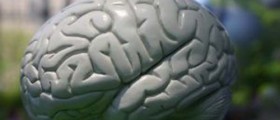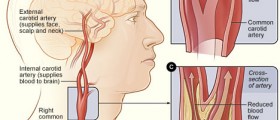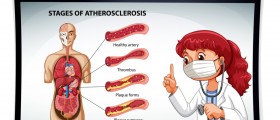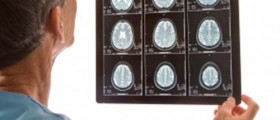
Vascular Dementia
Vascular dementia involves a variety of cerebrovascular diseases that destroy brain tissue, and thereby, damage the brain function. Vascular dementia usually develops as a result of brain damage caused by mild or more severe infarcts. It most commonly occurs in men, usually after the age of 70. The main risk factors for vascular dementia are: cerebrovascular diseases, diabetes, hyperlipidemia (increased fat level in blood), irregulated or poorly regulated high blood pressure, previous or recurrent strokes, narrowing of the carotid arteries in the neck, suffered heart attacks, cardiac arrhythmias, smoking and age.Causes
The main causes of vascular dementia are lack of blood flow in the brain vessels, brain tissue damaging after hemorrhage and vascular disease of the brain such as temporal arthritis. Also, vascular dementia may be a result of the vasculitis, inflammation of blood vessel walls, that affects the carotid artery. The disease often occurs in older people, reflecting a strong unilateral headache and sudden loss of vision in one eye. Systemic diseases such as Lupus erythematosus, inflammatory disease of blood vessels of connective tissue, also influences on development of vascular dementia. Atherosclerosis can lead to complete interruption of blood flow in the artery and stroke, or it may be diffuse, when the constriction of small arteries leads to insufficient blood flow to the brain. Atherosclerosis causes vascular dementia by changes in the arteries. It is believed that approximately one third of patients, 6 months after stroke develop signs of vascular dementia.Symptoms
Symptoms of vascular dementia are often similar to symptoms of Alzheimer's disease so it is often difficult to distinguish these two diseases. Symptoms include: memory disorders orientation disturbance in time and space inability to learn and remember new information frequent mood changes having difficulties in performing daily activities changes in behavior and character - people are becoming stubborn, stingy sleep disorders depression, anxiety and fear loss of motivation and initiative difficulties in writing, reading and speech impoverishment of speech, repeating the same words stereotyped movements and words non-recognition of the environment psychomotor agitationTreatment
Disease progression can be stopped or slowed down primarily by influencing on risk factors, which includes controlling blood pressure, blood sugar control, weight loss, physical activity and smoking cessation. Effective drug for the treatment of vascular dementia still doesn't exist. Namely, nerve cells that have failed due to a stroke or a reduced blood flow through the brain cannot be regenerated. Drugs, used to treat vascular dementia, effect on alleviating symptoms (sedatives) and increasing cerebral flow (gingko).Since vascular dementia in most cases occurs together with Alzheimer's disease, it is considered that the use of registered medicines for its treatment may also help in treating vascular dementia. These medications include cholinesterase inhibitors (donapezil, galantamine and rivastigmine) and memantine. In addition to pharmacotherapy measures, it is important to involve patients in a variety of hobbies and activities that exercise the brain. These activities include reading, solving crossword puzzles, playing social games, etc. It should be noted that the physical and mental activity is the most important measure in preventing vascular dementia.














-Disease-Cause-A-Stroke_f_280x120.jpg)


Your thoughts on this
Loading...